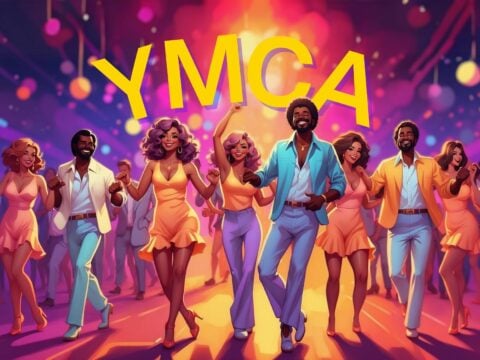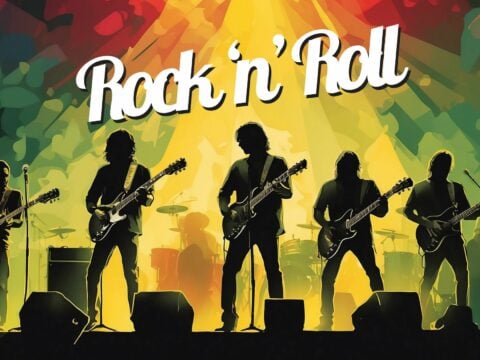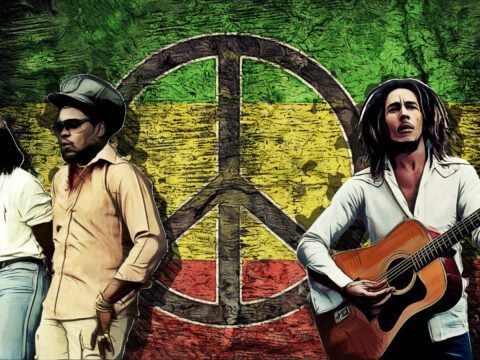The song “Y.M.C.A.” stands as an undeniable icon in pop culture, largely due to its catchy tune and memorable choreography that has made it a party favorite for decades.
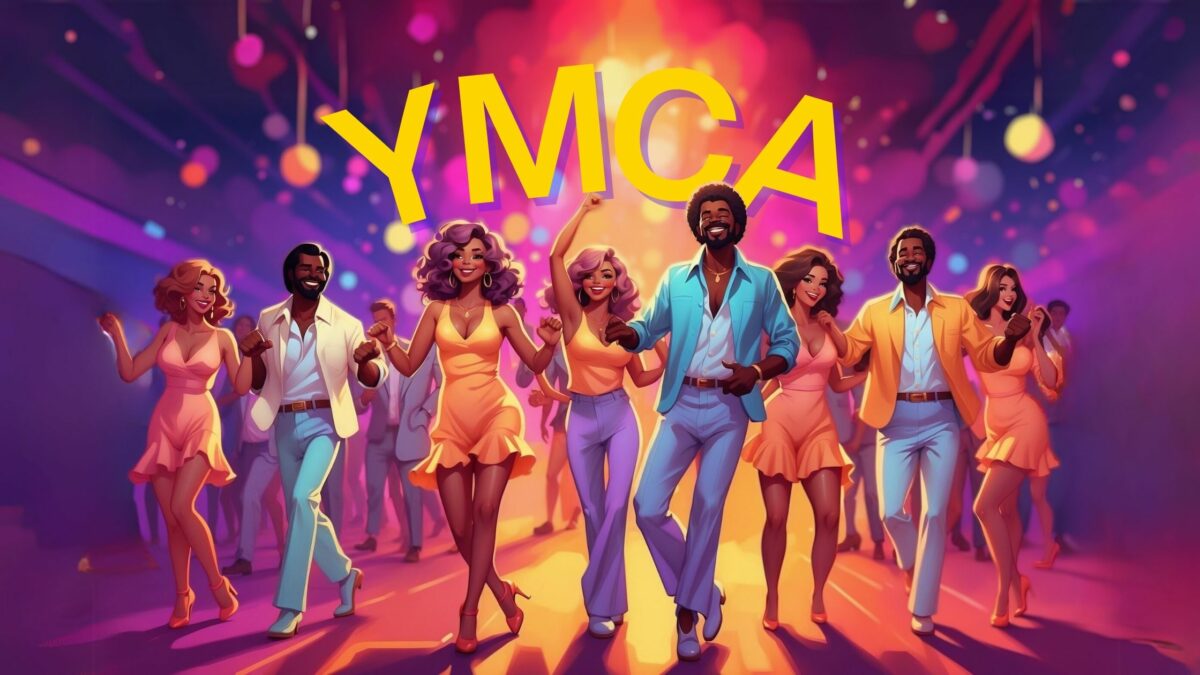
Released by the Village People in 1978, the song quickly ascended the charts and cultivated a stapled presence in disco dance culture. However, beyond its beat and infectious chorus, the song encompasses a deeper meaning that resonates with many individuals, especially within the urban community.
Table of Contents
While on the surface, “Y.M.C.A.” appears to be a vivacious call to join the communal space of the Young Men’s Christian Association, a detailed analysis of the lyrics reveals an underlying narrative. Its words reflect a message of support and a safe haven for young men in the city, which was particularly poignant for the LGBTQ+ community during the time of its release. The true meaning of the “Y.M.C.A.” song has been subject to varied interpretations and discussions, which adds layers to its lasting impact and significance.
Key Takeaways
- “Y.M.C.A.” is a seminal disco hit with an undercurrent of social support.
- The song has achieved worldwide recognition, impacting music and dance culture.
- Interpretations of its lyrics have fueled discussions on its significance within cultural narratives.
What Is the Meaning of The Song YMCA?
While the song “YMCA” by the Village People is widely embraced as a gay anthem, the song’s lyrics evoke a sense of inclusion and encouragement to young men to take advantage of the recreational activities and companionship found at the YMCA.
Despite its coded messages that resonate with the gay community, the Village People’s lead singer, Victor Willis, insists the song was written to reflect universal experiences of youth and community, not specifically as a gay anthem.
A deeper dive into the meaning of the YMCA song lyrics reveals an intricate dance between the lines, ambiguous enough to cater to a wide audience yet hint at a coded language that resonates profoundly within LGBTQ+ circles.
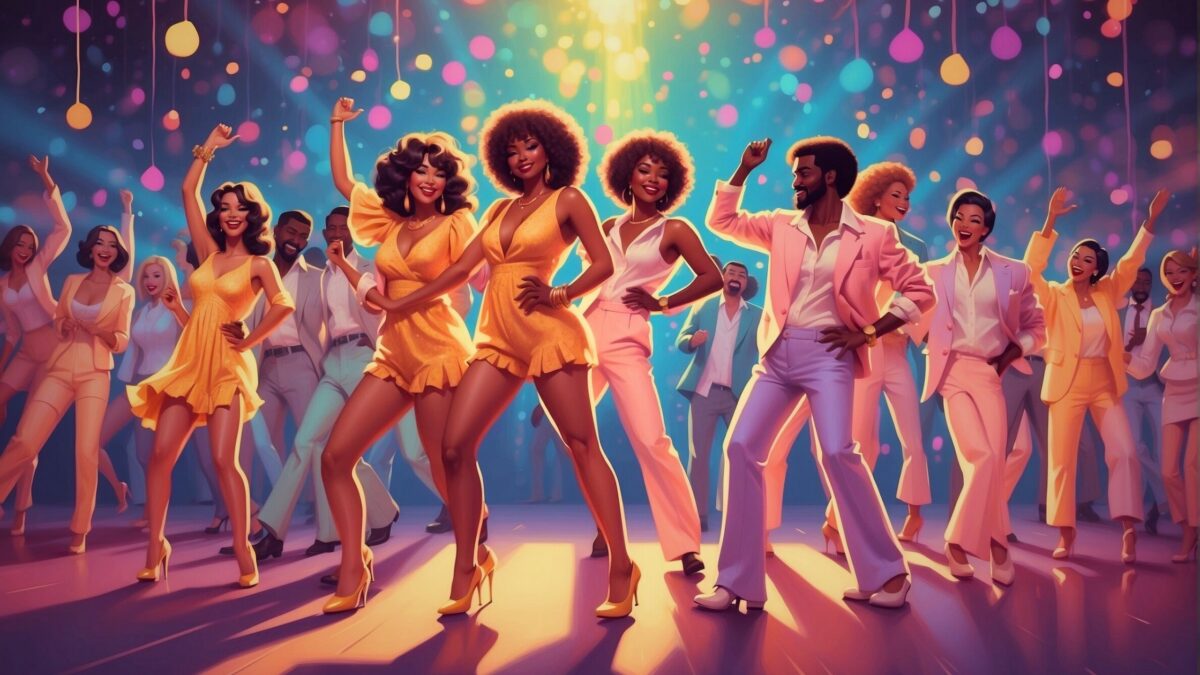
Background and Origins of the YMCA Song
The song “Y.M.C.A.” became emblematic of 1970s disco culture, attributed to its catchy melody and distinctive dance moves. Understanding its provenance and the individuals responsible for its creation lends insight into the song’s enduring appeal.
“Y.M.C.A.” was released as a single by the American disco group Village People in 1978. It quickly turned into both a commercial hit and a staple at public events, earning a place in music history due to its memorable hook and associations with the Young Men’s Christian Association. The song teases the potential for fun and camaraderie available at the YMCA facilities, using upbeat lyrics that invite listeners to join in the revelry.
What is the Musical Style and Genre of the YMCA Song
“Y.M.C.A.” is characterized by its lively disco beat and unmistakable baseline, tailor-made for dance floors. It incorporates a mix of funk guitar, brass, and the string section, typical of the era’s exuberant soundscapes. The use of repetitive choruses and simple, catchy hooks creates a communal singing experience, cementing it as an enduring anthem.
Influence of the Disco Era
During the disco era, music was designed to uplift and unify, a quality “Y.M.C.A.” exemplifies with its energetic tempo and sing-along chorus. The song reflects disco’s signature four-on-the-floor rhythm, which promotes continuous, upbeat movement, which is key to its success on dance charts. As it harmonizes the buoyancy of disco with approachable lyrics, “Y.M.C.A.” serves as a quintessential representation of the genre’s influence on popular music.
Lyrics Analysis
The “Y.M.C.A.” song performed by the Village People captures the spirit of liberation and enjoyment through its catchy lyrics and upbeat tempo.
Main Message and Themes
Main Message: The song’s chorus and verses extend an invitation to young men to take advantage of the Young Men’s Christian Association (Y.M.C.A.) facilities, implying that these places offer a safe space where one can be themselves and enjoy various activities. The spirited refrain, It’s fun to stay at the Y.M.C.A.,
echoes a sentiment of joy and celebration.
Themes:
- Inclusion: Lyrics such as “You can hang out with all the boys” point towards a theme of camaraderie and inclusion within the Y.M.C.A.
- Support: The song also touches on the supportive atmosphere of the Y.M.C.A., hinting at the notion that it was more than just a gym or temporary lodging but a place where young men could find support and guidance.
The YMCA Dance
The chorus lyrics were more than just a catchy chant; they played a significant role in crafting a song that spurred on dance and dialogue within multiple cultural contexts.
“It’s fun to stay at the Y.M.C.A.
It’s fun to stay at the Y.M.C.A.
They have everything for you men to enjoy,
You can hang out with all the boys.”
“YMCA” continues to thrum with this dynamic energy, ensuring its replay value at various gatherings, making it an anthem that both celebrates and transcends the disco music era.
- Era-defining disco beats that captivated a global audience
- A symbol of LGBTQ+ unity and visibility during its rise
- An iconic dance routine that has permeated pop culture
- A testament to the power of music in shaping cultural memory
The spectrum of “YMCA’s” impact is vivid and multi-faceted. From the initial groundbreaking release to its soaring chart-topping accolades and retention as a cultural touchstone, the song remains a testament to the enduring appeal of the Village People and the celebratory essence of disco music.
Unity of the YMCA and its Cultural Impact
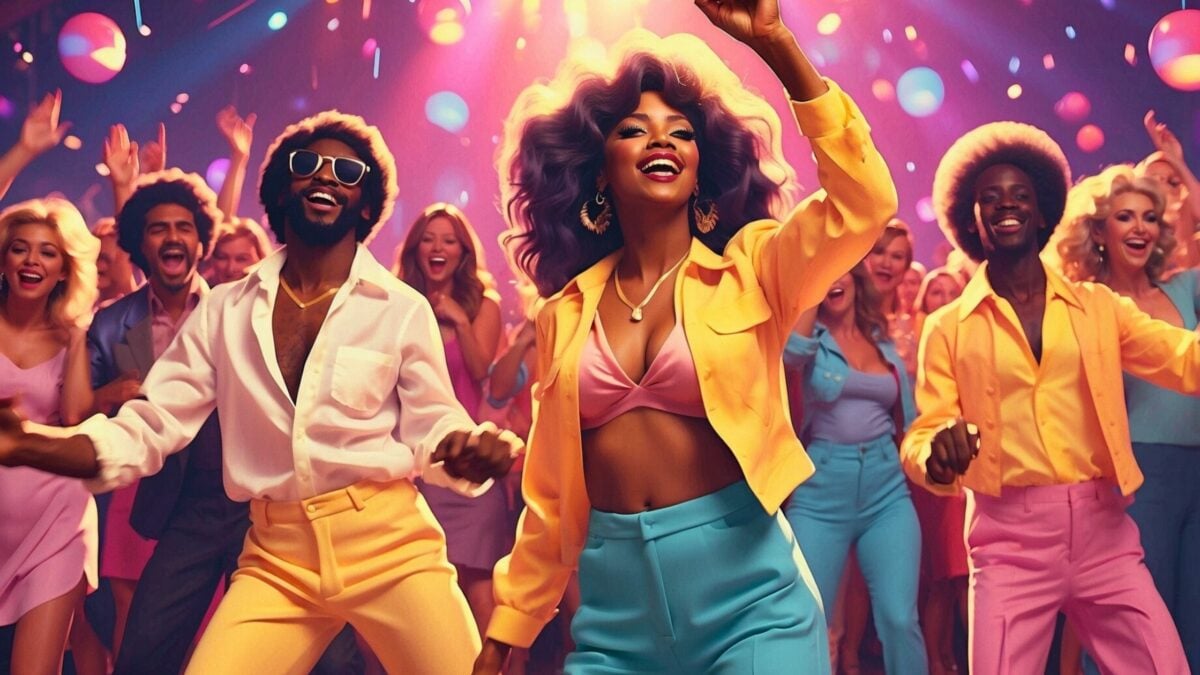
The YMCA song has been played in Gymnasiums, political rallies, parties, and all other kinds of events that need an audience to be more excited. The upbeat nature of the song directly translates to more activity at whatever event is being played.
Imagine every situation in your life where you’ve heard this song being played, and then take it out of those memories. They will, more often than not, become a lot more boring. Songs like YMCA are able to take someone who may not feel a lot of motivation and actively make them feel those emotions that they need.
Using Pride Activism To Unite Homosexual Men
The song, for some people, has been a way of being accepted as a song for acceptance of gay people. The YMCAs that exist would become places where gay men were able to meet each other, where there weren’t any other places where they were able to go at the time. To have that kind of reputation has had several pride parades adopt the song and use it as an anthem.
Most of those parades are also really accepting and want their local communities to accept their lifestyle choices. Even at the time, the song really spoke to people who were gay at the time with some slight undertones that the casual listener would miss.
The last line of the song, Young Man, young man, put your pride on the shelf,
definitely has a different context today. This is especially true with the different pride activist groups embracing the song. Though, they are by no means the only people who still play the song.
The LGBTQ+ Community’s Embrace of an Anthem
Irrespective of the Village People’s intentions, “YMCA” has become an iconic LGBTQ+ anthem YMCA, cherished and claimed by the gay community across multiple generations. The influential track, coupled with the Village People’s flamboyant personas, served as a source of pride and coherence for a community often marginalized in public discourse.
The song’s popularity within gay circles can partly be attributed to its suggestive lyrics, which simultaneously captured the liberating spirit of the era and provided a nod to the community’s vernacular. The accompanying lively melody and colorful performances by the Village People only amplified the song’s status as a cultural signifier.
- The adoptive anthem ignited visibility for the LGBTQ+ community.
- It brought forth a sense of celebration and acceptance within a vibrant gay culture.
- Village People’s elaborate costumes and performances enhanced the song’s appeal.
The symbolic relationship between the Village People’s music and the cultural tide of the time has firmly entrenched “YMCA” in the collective consciousness as a legendary disco hallmark and an emblem of inclusivity.
Speaking to The Black Youth
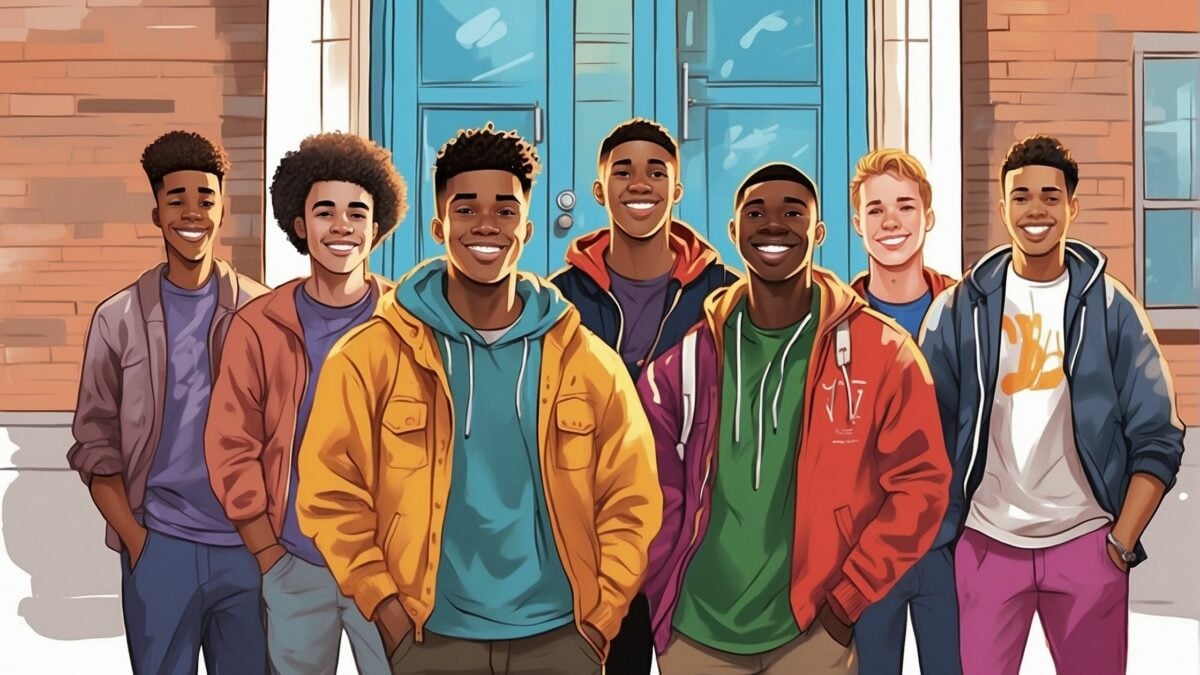
One of the members of the Village People, Victor Willis, wanted his part of the song to “reflect black youth.” There were many problems that black youth felt at the time and still feel today. However, a lot of the problems were ones that devastated a community and made them feel like there was no way of fixing themselves or the people that they closest to them. Having a song that can do that is really powerful and one that has stood the test of time says a lot about it.
The deeper problems that black neighborhoods face are ones that can only be prepared once the people who live in them live a better lifestyle. This was the message that Victor Willis was trying to give to his audience. That doing positivity in your community can change you for the better.
In an era of rampant drug use, having children at a young age, or being engaged in delinquency, a song like this can do a lot of good. Music is something that has a lot of power and can transcend language barriers to communicate the kind of message it wants to send out.
Motivating People To Strive For Their Ambitions
Motivation is a feeling that can be a lot more complex than people give it credit for. During this time, there was music that was very melancholic and calm, with early rock and some classical music. Even when a song was more positive with some of the Beatles albums, the intent was to be happy and not necessarily make the listener feel motivated. This song was different. The lyrics were definitely created with the intent to inspire everybody to go and follow their goals regardless of how they feel, and the lyrics were able to communicate that.
Lyrics like, Young man, young man, there’s no need to feel down
, young man, young man pick yourself off the ground
are messages that even kids can relate to. Motivation is something that is temporary to feel, but it’s something the people of America need to hear. When a song like this is communicated to millions of people is communicated to millions of people, it really helps them in whatever they’re doing. It could be finishing sets at the gym to train their muscles, it could help them finish their work during the last few hours of work or anything else where they’re lacking motivation.
Bring All American Communities Together
The YMCA song isn’t one that you will ever hear someone listening to by themselves. The most important thing about the song is that it brings people together. Other than Christmas music, it is quite rare to see any work of art bring people together as effectively as this song. You can play this song in any outdoor setting in America, and there will be someone who will either give you comments on the song or will want to come near you. The upbeat and positive nature of the song leads to interactions like that.
More than the harmony of the music of the song, the lyrics also serve as a way of bringing people together. The YMCA itself is a Christian association for young men, a place that is going to be an escape from their problems and help them to meet people who can be friends or offer a piece of wisdom to them. The song is more about having fun with people, regardless of the space that they happen to be in. However, the deeper meaning can be that escaping into these activities makes sure that you aren’t doing things you aren’t supposed to.
Conclusion: The YMCA Anthem’s Lasting Echo
As we reflect on the journey of the Village People’s “YMCA,” it becomes evident that the song’s cultural impact extends far beyond its melody and famed choreography. Understanding the YMCA meaning involves recognizing the track as a vibrant tapestry woven with threads of inclusion, celebration, and resilience.
The YMCA’s depiction as a sanctuary resonates with listeners’ universal desire for community and connection, hallmarks that crown this track as a cultural cornerstone. Whether through suggestive lyrics or an easy-to-learn dance routine, “YMCA” has become a beacon of collective joy and a capsule of collective memories.
In the final measure, “YMCA” stands as a luminous example of how a piece of music can encapsulate the zeitgeist of its era while rippling forward into the future, encouraging new generations to explore its depths. As both historians and revelers continue to spin the Village People’s record, the song echoes a sentiment that binds us together under the disco ball of life—where it truly is “fun to stay at the Y.M.C.A..
Frequently Asked Questions
The ‘YMCA’ song by the Village People has sparked various questions about its background, influence, and meaning. Here are some specific points addressing frequently asked questions.
What is the story behind the Village People’s ‘YMCA’ song?
The track ‘YMCA’ was written by Jacques Morali and Victor Willis. It was inspired by the Young Men’s Christian Association’s reputation as a safe haven for young men, which is reflected in the lyrics and upbeat tone of the song.
What elements contribute to the enduring popularity of the ‘YMCA’ dance?
The ‘YMCA’ dance is characterized by its simple and iconic arm movements that spell out Y-M-C-A. This easy-to-learn dance and the song’s catchy chorus contribute to its widespread popularity as a communal dance at events.
How does the ‘YMCA’ song reflect the operations and activities of the actual Young Men’s Christian Association?
While the ‘YMCA’ song celebrates the YMCA organization as a place where one can have fun and belong, it doesn’t delve into the YMCA organization’s broader operations beyond suggesting a general sense of community and support.
In what key was ‘YMCA’ composed, and what is its musical significance?
‘YMCA’ was composed in the key of G minor. This key allows for a funky and energetic bassline, which is a significant element of the song’s catchy and danceable nature.
What impact and legacy has “YMCA” left on music and pop culture?
The song “YMCA” has made an indelible mark on music and pop culture with its infectious chorus, iconic dance moves, and universal message of community. The song has been inducted into the Grammy Hall of Fame, preserved in the National Recording Registry, and continues to be a staple at various events, demonstrating its lasting appeal and cultural significance.
How did the gay community adopt the cultural phenomenon of YMCA?
The gay community adopted “YMCA” both for its energetic, disco-infused melody and for its lyrics, which many interpret as containing double entendres that resonate with the gay experience. YMCA centers were known to be meeting places for gay men, and the song’s reference to “hanging out with all the boys” has a particular significance within the community. As a result, the song has become an iconic gay anthem celebrated in pride parades and LGBTQ+ events around the world.
Are there hidden meanings in the YMCA lyrics?
While the “YMCA” lyrics seem straightforward in celebrating the community spirit and benefits provided by the institution, they are also speculated to contain subtexts that acknowledge the YMCA as a social hub for young men. The double entendres, noted for their playful and suggestive tone, point to a layered narrative that extends beyond a call to wholesome activity, potentially hinting at the YMCA’s role in the urban gay community during the 1970s.
What are Victor Willis’s official statements on the intended meaning of “YMCA”?
Victor Willis, the lead singer of the Village People, has repeatedly stated that the song “YMCA” was not originally intended to be a gay anthem. He shares that the inspiration came from his own experiences at the YMCA, playing basketball, and participating in other activities. Willis maintains that the lyrics were written to reflect the broad and universal experiences of fun and community at the YMCA, countering the widespread belief that the song was meant to convey a specific message to the gay community.
How has the LGBTQ+ community responded to “YMCA” and its message?
Despite the Village People members’ stated intentions for the song, the LGBTQ+ community has adopted “YMCA” as an anthem celebrating the sense of belonging and freedom that many gay men found in the welcoming environment of the YMCA. The community has embraced the song not only for its joyous, danceable beat but also for the perceived subtext that speaks to their experiences.
